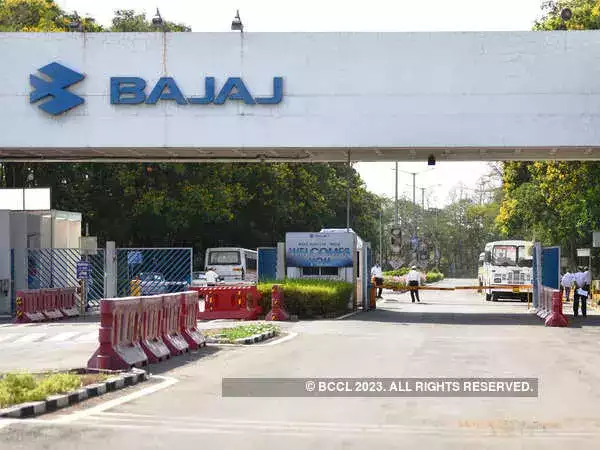Bajaj Auto, one of the leading automobile manufacturers in India, has announced a significant increase in its consolidated net profit for the September quarter. The company reported a net profit of Rs 2,020 crore, marking a 17.51% growth compared to the same period last year.
Contributing to this impressive performance is Bajaj Auto’s robust domestic performance, which has driven record revenue for the company. Total income for the second quarter of the current fiscal year reached Rs 11,207 crore, up from Rs 10,537 crore in the previous year.
Bajaj Auto’s revenue from operations also reached a new high of Rs 10,777 crore, reflecting a 6% year-on-year increase. However, in terms of volume, the company experienced a decline in sales. Bajaj Auto sold a total of 10,53,953 units in the quarter under review, down 8% from the year-ago period.
Specifically, two-wheeler sales in the domestic market decreased 19% to 5,05,320 units in Q2, while exports were also down 5%. On the other hand, three-wheeler sales saw a significant increase of 31% in the quarter.
Amidst challenging international trading conditions, Bajaj Auto’s Executive Director, Rakesh Sharma, expressed satisfaction with the company’s “record-breaking” performance. He attributed the decline in two-wheeler volumes to the high base effect of the corresponding period last year.
Sharma also highlighted Bajaj Auto’s success in increasing its market share in the 125cc and above motorcycle segment, leading to better revenue realisation. Additionally, the company achieved its highest-ever quarterly sales in the domestic market.
Furthermore, Bajaj Auto has made notable progress in the electric two-wheeler segment with its brand Chetak. After addressing supply chain issues earlier this year, the company saw its market share increase to 11% in Q2, up from 3% in the previous fiscal year. Bajaj Auto plans to expand the brand’s portfolio and sales network.
Discussing the penetration of electric two-wheelers in the overall market, Sharma acknowledged that it currently stands at around 5%. However, sales have been hindered rising prices after the reduction in FAME II subsidy. As a result, consolidation has occurred among the top players, while the bottom players have been adversely affected. The future growth of electric two-wheelers will depend on the continuation or changes in the FAME scheme.
In terms of other developments, Bajaj Auto’s premium bike brand, Triumph, has been well-received in the market, with 8,000 units sold within the first one and a half months of deliveries. The company plans to increase monthly production to 10,000 units the fourth quarter of the next fiscal year. Additionally, Bajaj Auto aims to expand the brand experience to over 100 cities and commence exports of Triumph bikes the third quarter.
Looking ahead, Bajaj Auto has exciting plans for new launches and upgrades in the 125cc and above segment within the next four to five months. The company also expects a slow and steady recovery in exports, considering the current global geopolitical situation and challenges in the financial system.
In terms of financials, Bajaj Auto has sustained strong cash generation, with over Rs 3,600 crore of free cash flow added in the first half of the current fiscal year. The company’s shares ended marginally higher at Rs 5,143.80 apiece on the BSE on Wednesday.
Overall, Bajaj Auto’s impressive performance, particularly in the domestic market and the electric two-wheeler segment, demonstrates its resilience and ability to thrive amidst challenging conditions. The company’s focus on increasing market share, expanding product offerings, and maintaining strong cash generation positions it for continued success in the future.

